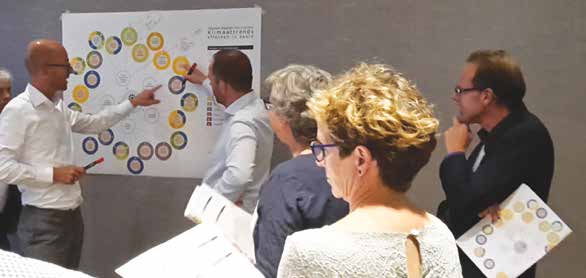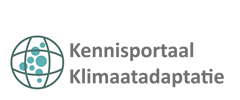The Overijssel Regional Adaptation Plan
The changing climate poses a challenge with a spatial impact that needs to be tackled at a considerably faster pace. For that reason, the province of Overijssel has drawn up a Regional Adaptation Plan (RAP). This RAP sets out the measures that are required to render Overijssel climate-adaptive by no later than 2050. Wherever possible, the associated ambitions are embedded in various provincial plans, such as the Environmental Vision. Local governments as well as organisations, businesses, and residents are expected to do their part in terms of measures and investment.
Ultimo December 2017, the RAP was forwarded to the Overijssel Provincial States and to all the municipalities and district water boards in the province. The RAP constitutes the foundation for the implementation agenda that will be presented at the end of 2018 together with the Overijssel stakeholders.
Establishment of the RAP
Following an administrative start-up session in March 2017, several interactive (official) meetings were held to share know-how, inspiring examples, and results of climate adaptation measures among the province, the Overijssel district water boards, municipalities, Rijkswaterstaat [the executive branch of the Ministry of Infrastructure and the Environment], the security regions, housing corporations, nature and environmental organisations, the land registry, the area health authority, and interest groups such as the Dutch Federation of Agriculture and Horticulture LTO and the Royal Dutch Touring Club ANWB.
A series of broad-based working sessions subsequently mapped out the impact of climate change in Overijssel using the conceptual diagrams from the National Adaptation Strategy. The parties involved collectively set down the most urgent taskings and the additional efforts required to adopt a climate-adaptive approach by 2020 and achieve climate-adaptive spatial planning by 2050.

In December – just before the RAP was adopted by the Provincial Executive of Overijssel – a more comprehensive round of administrative consultations was held.
Outlines of the RAP
Seven urgent issues have been identified on the basis of the main effects of climate change on Overijssel, as jointly mapped out, and the process completed:
- Increasing heat and water in cities;
- Limited access to Overijssel;
- More frequent failure among vital and vulnerable objects;
- Sustainabilisation of the agricultural sector;
- Changing natural environment;
- Limited availability of suitable water;
- Increased flood risk.
Each issue has been examined in terms of the additional steps required, if any, to render Overijssel climate-adaptive by 2050. The province of Overijssel will be assuming a liaising and facilitating role in the development of “Expertise, Know-how, and Frameworks”, and allocate the necessary funds. The climate adaptation ambitions will be embedded in various provincial programmes and policy, insofar as this is not yet the case, such as the Environmental Vision. The RAP sets out which steps and concrete actions will be taken in Overijssel by the end of 2018 and beyond.
Lessons learned from the project
Concerted action was found to be essential in the development of a regional adaptation plan. Several interactive working sessions have been organised during which each party had the opportunity to have a say. It has been important to continue to outline why we needed to join forces: a continuous reflection on the urgency (we need to do it now!), the extent of mutual dependency (we really need one another!), and the beckoning perspective (the entire province climate-proof!) were key. Going through this process together expands and boosts the climate adaptation network in Overijssel; this is an important condition for the implementation programme to be drafted by the end of 2018.
Contact persons
F. de Vries (Projectleider)
Provincie Overijssel
f.d.vries@overijssel.nl
06-10435167
M.M. Eijer (Programmasecretaris)
Provincie Overijssel
M.Eijer@overijssel.nl
06-51144626
